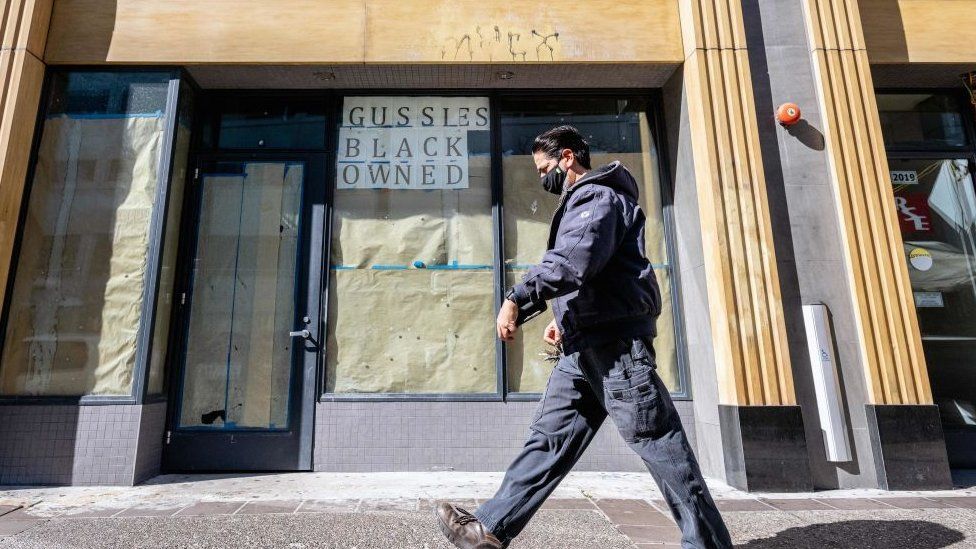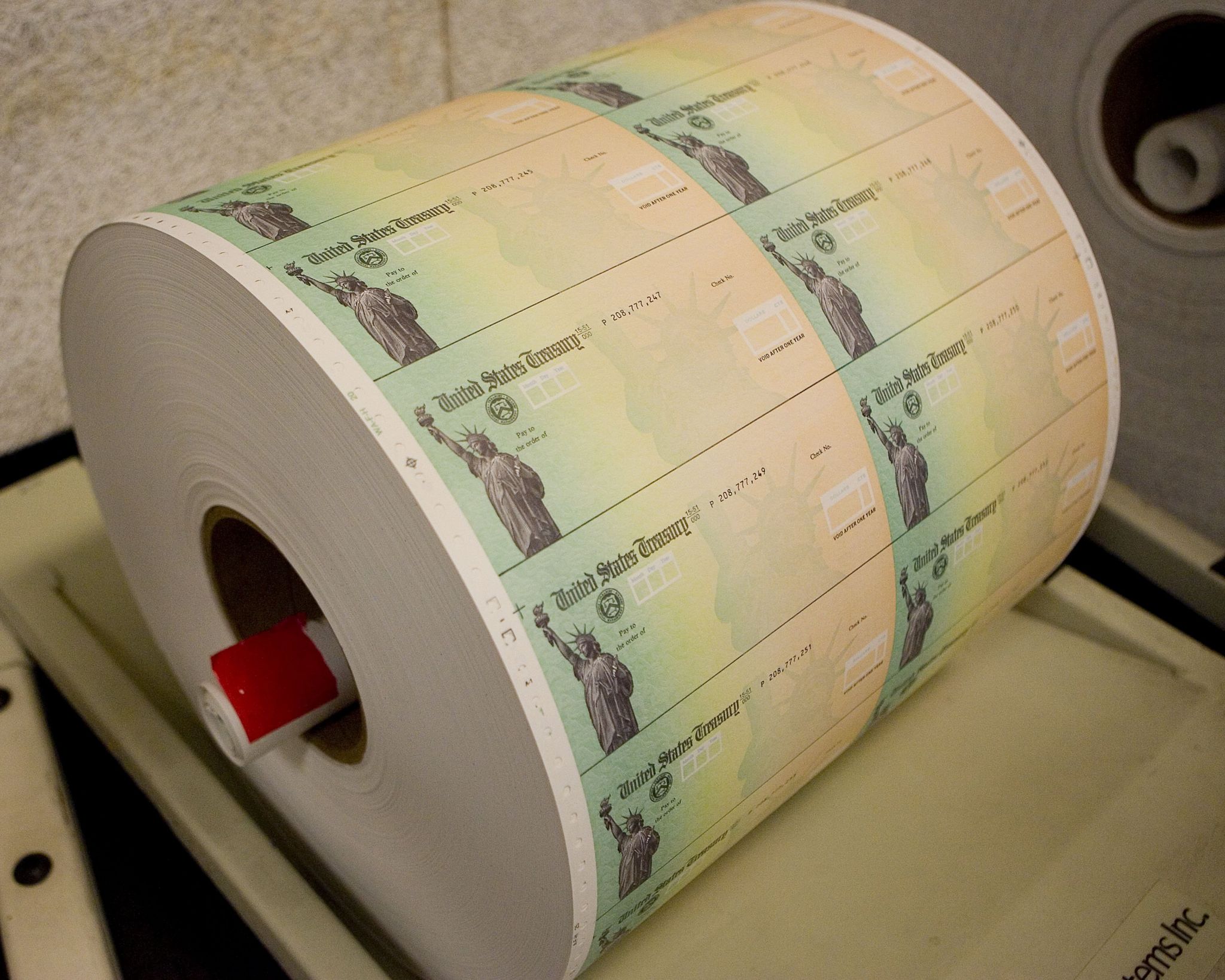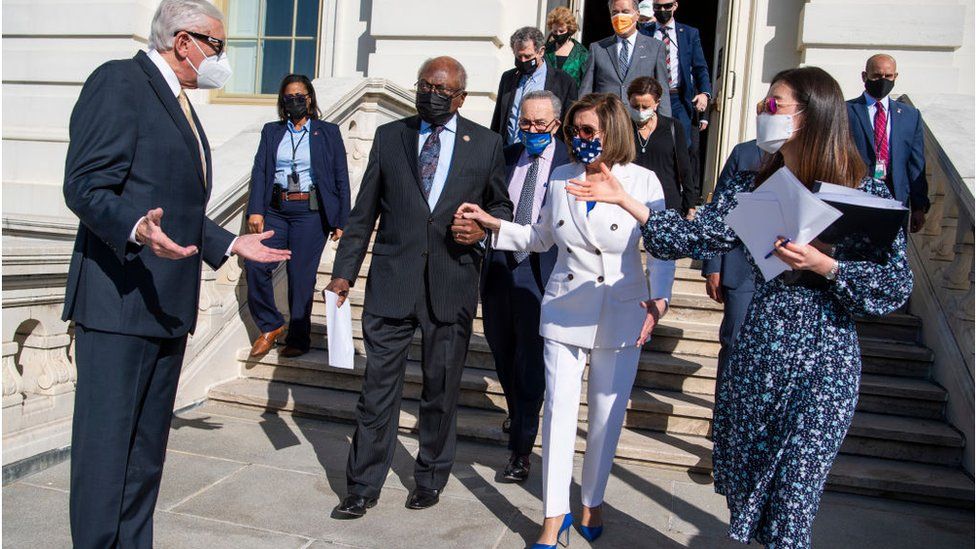BBC News 11 March 2021 - by Anthony Zurcher
Back in 2010, then Vice-President Joe Biden used a swear word to emphasise how big a deal he thought congressional passage of sweeping Democrat-backed healthcare reforms was.
The bill, due to be signed by Biden on Friday, will not only provide direct payments to most Americans, allocate billions of dollars to Covid research, testing and vaccine distribution, but also greatly expands welfare for families with children.
So will it merit a celebratory expletive? Only time will tell.
A firehose of aid - with a risk
There has been nothing quite like the pandemic aid bill in recent American history. It's roughly the same size as the combined total of the three legislative efforts to address the impact of Covid-19 last year. It dwarfs the $831bn American Recovery and Reinvestment Act, passed to address the Great Recession in the early days of the Obama administration (thanks in no small part to then Vice-President Biden's lobbying efforts). It is well over half of the $3.5tn that the US government brought in as revenue in 2019.
In pure government muscle, Biden's effort is more akin to US expenditure in World War II or Franklin Roosevelt's Depression-era New Deal programmes in size and scope.
With $1,400 payments to many Americans, extended unemployment insurance benefits and aid to businesses and state and local governments, the relief bill will unleash a gusher of money across the US. Combined with expanded rollout of the Covid-19 vaccine - which the legislation will also help fund - the US could be poised for a post-pandemic rebound of monumental proportions.
A survey of economists by the Wall Street Journal sets forecasts for US growth in 2021 approaching 6%, a mark not surpassed in almost four decades.
In fact, one of the growing concerns about the aid bill - also raised in the Journal article - is that it could spur economic growth that leads to debilitating inflation.
"It could be a fiery accelerant for global markets as gas prices surge, home prices jump, speculative assets soar and investors increasingly fear the kind of sharp inflation spike that can hit with remarkable speed if the government pours too much gasoline on an already warming economy," writes Ben Wright for Politico.
If that turns out to be the case, Biden - who appears poised to reap the political benefits of a booming economy - could end up taking a beating, instead.
Historic new support for the poor - for now
While the $1,400 payments to a broad swath of Americans will generate most of the headlines from Biden's Covid relief package, it's money to a smaller subset - low-income families with children - that could have the greatest impact.
The bill expands an existing tax credit for families with children, including nearly doubling the amount provided for less affluent families. What's more, the tax credit is "refundable" - meaning parents could receive the money even if they don't pay any taxes - and payable in advance.
That means starting later this year, the US government will start effectively implementing a European-style child allowance, cutting cheques for as much as $300 a month to eligible families.
According to a study by Columbia University's Centre on Poverty and Social Poverty, the tax credit, along with other components of the aid bill, will cut child poverty in the US - currently estimated to be around 15% - by half. Historic new support for the poor - for now.
The benefits could be temporary, however. Because of budgetary limitations in the way the Covid relief bill was passed, the child credit expires in 2022. Congress will have to re-authorise the new levels again next year if they are to become permanent.
Many Republicans in Congress opposed the credit, in part because it was not tied to employment.
"We do not support turning the Child Tax Credit into what has been called a 'child allowance,' paid out as a universal basic income to all parents," Senator Mike Lee of Utah said in a statement of opposition. "That is not tax relief for working parents; it is welfare assistance."
That could set up a tense political showdown over the best ways for addressing childhood poverty on the eve of the 2022 mid-term elections.
It's a fight Biden and the Democrats would probably welcome, however.
New president, same partisanship
In his inaugural address delivered from the steps of the US Capitol on 21 January, Biden called on the nation to overcome the forces of division.
"This is our historic moment of crisis and challenge, and unity is the path forward," he said.
Unity, however, was in short supply in Congress when it came to Covid bill. Although Biden made efforts to meet with Republican senators to discuss the legislation, in the end not one congressional Republican voted for the measure.
Democrats have been quick to point out that universal partisan opposition to the aid bill is limited to the confines of Congress.
Among the public at large, at least according to opinion polls, there are bipartisan majorities that back the legislation.
A Morning Consult poll pegs Democratic support for the bill at 90% for Democrats and 59% for Republicans.
Nevertheless, the inability to reach any kind of bipartisan consensus in Congress - on a bill that contained many popular provisions even Republicans agreed are necessary - means Biden's opponents are now dug in to their partisan trenches.
Because of procedural manoeuvres, Democrats were able to pass Biden's Covid bill with a simple majority. Future legislative priorities will almost certainly require some Republican support, barring significant changes to Senate rules.
This massive relief package, particularly with its record amounts of support for low-income families, is a significant accomplishment. Biden could have achieved a victory on a smaller scale and garnered some Republican support.
He decided to go it alone, however. The president will probably have a lot of more work to do if he wants this to be more than a lone legislative accomplishment.



